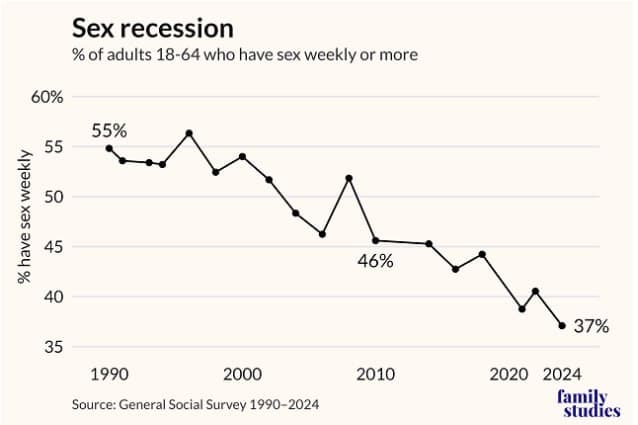In a striking shift, a recent study reveals that the percentage of U.S. adults aged 18 to 64 reporting weekly sexual activity has plunged from 55% in 1990 to just 37% in 2024. This trend is particularly pronounced among young adults, who are experiencing the most significant decline.
The study highlights a broader societal change, noting that young adults" social interactions have also dwindled. Time spent with friends has fallen dramatically, from an average of 12.8 hours per week in 2010 to only 5.1 hours in 2024. Experts attribute this decline to the rise of digital media and social networking, which has transformed traditional socialization patterns.
This decline in sexual activity and social interaction is raising concerns among sociologists and health experts, who warn of potential long-term implications for mental health and relationships. The findings echo previous reports on the shifting dynamics of intimacy and connection in an increasingly digital world.
As society grapples with these changes, it remains to be seen how individuals and communities will adapt. The ongoing "sex recession" may prompt discussions on the importance of fostering real-life connections, as well as the need for a cultural shift in how relationships are formed and maintained. For more on the evolving landscape of social interactions, see our related coverage.







![[Video] Gunfire between Iraqi security forces and Sadr militias in Baghdad](/_next/image?url=%2Fapi%2Fimage%2Fthumbnails%2Fthumbnail-1768343508874-4redb-thumbnail.jpg&w=3840&q=75)
